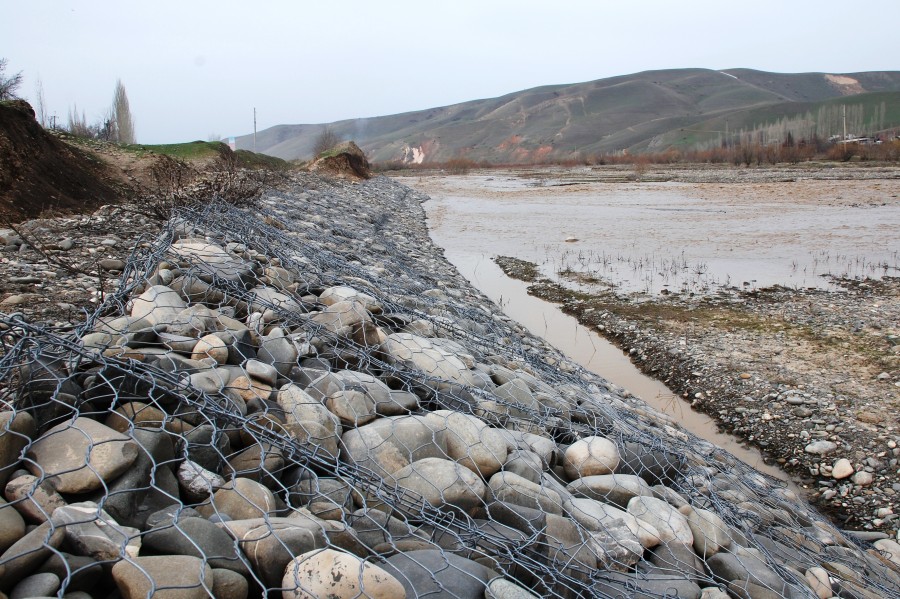-
Implementation Period: 2023 - 2024
-
Donor organization: Deutsche Gesellschaft für Internationale Zusammenarbeit GmbH (GIZ)
-
Geographical location:
Chuy oblast, Kemin district, Batken oblast, Kadamzhai district, Kyrgyzstan
The objective of the project is to improve cross-border climate and disaster risk management in Central Asia. The project consults watershed associations, the regional Centre for Emergency Situations and Disaster Risk Reduction, and stakeholders from selected watershed councils to develop capacity to reduce transboundary water-related climate risks. This anchoring is to be achieved by strengthening the framework conditions as well as competence development measures of actors at different levels, while annually implementing number of measures agreed among Central Asian countries. The capacities of the partner organizations and the competencies of key actors are strengthened through the direct implementation of activities on agreed transboundary watersheds.
Project Background
|
CAMP Alatoo was engaged to perform a range of services to fulfil the following tasks:
- Identification of the relevant local stakeholders and interested (target) groups in the PIAs
- Overview of the local development planning processes at the community or rayon/district level as well as sectoral planning processes (Water management, emergency response and agriculture management planning);
- Review of existing transbaundary cooperation and exchange mechanisms in Isfairam-Sai, Shahirmardan and Chon-Kemin transboundary watersheds.
- Conduct Capacity Need Assessment with elaboration of report, which covers status quo on Climate change adaptation and Disaster Risk Reduction (related to water) and Management of the local self-governing institutions, including river basin organizations and councils and local communities in Isfairam-Sai and Shahirmardan transbaundary watersheds.
- Conducting a KAP (Knowledge Attitude and Practice) survey in the Kadamjay region with focus on two transboundary watershed (with additional potential sites fromm ly Chui and Talas river basins) as well as on the national level. The aim of the KAP survey is to develop Communication, Education and Awareness Building Strategy with the following objectives:
- Identification of the entry points into the transboundary cooperation and exchange mechanisms in the selected watersheds between countries.
|
Project Objectives & Goals
The overall objective includes collecting relevant sectorial information needed for effective planning of the program measures in Project Intervention Areas.
Project Result
The provided reports and the roadmap will be used by the regional CRMCA project for technical interventions (infrastructure and other measures) and capacity building of local stakeholders.
